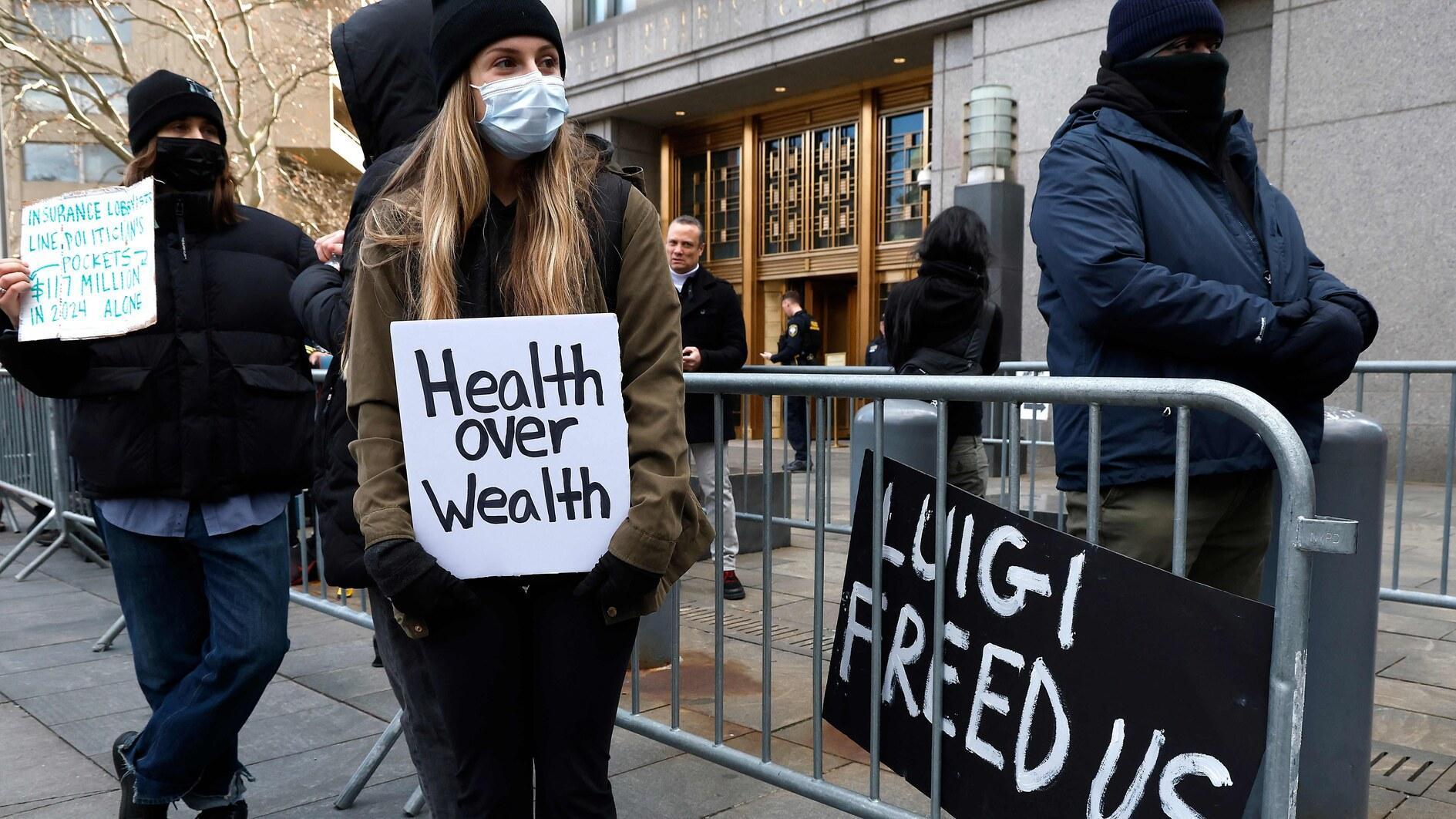Misinformation and online threats after US CEO slaying
NEW YORK

A U.S. health boss's murder sparked a torrent of online misinformation and calls for violence against other executives, suggesting a failure of social media moderation that analysts fear could translate into real-world harms.
The posts, allowed to spread unfettered across tech platforms, came in the wake of the shooting of UnitedHealthcare CEO Brian Thompson in New York on Dec. 4 and lay bare a Wild West internet landscape that is largely bereft of guardrails.
"As much disagreement as there is about what content, if any, should be moderated - at the top of most peoples' list would be 'explicit threats of violence,'" Jonathan Nagler, co-director of New York University's Center for Social Media and Politics, told AFP.
"So seeing posts on social media that explicitly encourage violence against anyone including CEOs of health insurance firms, suggests that content moderation has failed."
Further exemplifying that failure, disinformation security company Cyabra identified hundreds of accounts across X and Facebook that spread a host of conspiracy theories related to the murder.
Thompson's murder has unleashed pent-up anger towards the nation's health insurance companies, which patients and advocacy groups say fail to provide affordable care.
Many comments taking aim at the medical system quickly spiraled into targeted threats against high-profile CEOs.
Hashtags such as "CEO Assassin" gained traction and multiple posts aimed at health insurance providers brazenly asked: "Who's next after Brian Thompson?"
One post targeting insurer Blue Cross Blue Shield said: "Let your CEO know... you're next!!!"
Similar posts took aim at Humana's CEO Jim Rechtin and Andrew Witty from the UnitedHealth Group, the parent company of Thompson's firm.
"The danger here is clear: unchecked hate and disinformation online have the potential to spill over into real-world violence," Dan Brahmy, chief executive of Cyabra, told AFP.
With the elevated risk, U.S. corporations are increasing security personnel at offices and residences of senior executives, many of whom have been asked to delete their digital footprints, U.S. media reported.
Ivy League graduate Luigi Mangione, who is accused of Thompson's murder, has been widely lionized online.
Brahmy said this demonstrated the "alarming power of unmoderated social media" to amplify violent narratives.
Social media content moderation has emerged as a political lightning rod in the United States, with many conservatives calling it "censorship" under the guise of fighting misinformation.
Platforms such as X have gutted trust and safety teams and scaled back moderation, making it what researchers call a hotbed for misinformation and hate.
"As platforms grapple with moderation challenges, it's imperative for companies, governments, and users alike to remain vigilant against the disproportionate influence of bad actors, who exploit social tensions to manipulate public perceptions and conversations," Brahmy said.
















